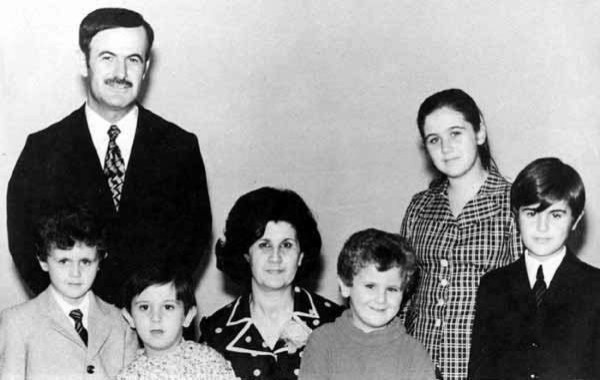Bashar al-Assad: Five Things You Didn't Know About the Syrian Leader

The protests in Syria have shown the world the brutality of President Bashar al-Assad, who has used state security forces to kill around 3,5000 civilian demonstrators.
Assad has been the President of Syria for 11 years, and although this is not the first time he has cracked down on opposition voices, it has become the most severe. He is losing political support in the Middle East and the once-tight grip he had on the country might soon be slipping.
Here are five things you didn't know about Bashir al-Assad:
Doctor Assad
Assad studied medicine at the University of Damascus, then moved on to the Western Eye Hospital in London, England, where he studied optometry. He received a degree and worked as a resident in London hospitals in the early 1990s.
Assad's uncle, Rifaat Assad, told The Associated Press from his self-imposed exile in Paris, that he thinks President Assad doesn't have the stomach for power and should return to his medical practice.
Syrian Computer Society:
Assad founded the Syrian Computer Society, an organization that brought the Internet to Syria in 2001. Before he became president, the Computer Society was his only experience in public policy and politics.
Military Career:
Assad was called back to Syria during his medical training after the death of his older brother Basil so that he could begin being groomed for leadership.
In 1994, he entered into a military academy in Homs (coincidentally the place where some of the most violent events of the current uprising have taken place). Assad quickly rose through the ranks and became a colonel in his father's army by 1999. He also became the head of the military's armored division.
No Term Limit:
Assad was elected President of Syria in 2000, after his father Hafez Assad died of a heart attack. He is in the middle of his second seven-year term, having been elected with a 97.6 percent majority in 2007.
He is a member of the Ba'ath party, which has maintained sole power in Syria since a 1963 military coup. Assad's father ruled for 30 years, solidifying the hegemony of the position of President of Syria, as well as the National Progressive Front political party and the al-Assad family.
While the position does carry a term limit, Assad could be president for the rest of his life he if so desires. Opposition parties are illegal in Syria, and so each election he runs unopposed.
However, the Syrian dissidents and activists currently protesting against his regime demand his resignation, and despite a promise to open a dialog with the demonstrators, a negotiated resignation by Assad could be the only thing to stop a civil war.
Assassination of Rafik Hariri
It has been established that Assad supports militant groups in the Middle East, especially ones that oppose Israel, one of Syria's traditional enemies. He has been connected with Hezbollah and Hamas.
In 2005, Lebanese Prime Minister Rafik Hariri was assassinated in Beirut when a bomb was detonated next to his motorcade. As a politician, Hariri maintained an anti-Syrian position and said that Assad threatened to break Lebanon if Hariri opposed him.
After Hariri was killed, the United States and the United Nations opened an investigation into Syria's involvement. Four members of the Lebanese militant opposition group Hezbollah were taken to the International Courty of Justice.
In the years following Hariri's assassination, a number of other anti-Syrian figures have been killed, including Lebanese politicians George Hawi, Gebran Tueni, Pierre Amine Gemayel, Walid Eido, and Lebanese professor Samir Kassir.
© Copyright IBTimes 2025. All rights reserved.





















